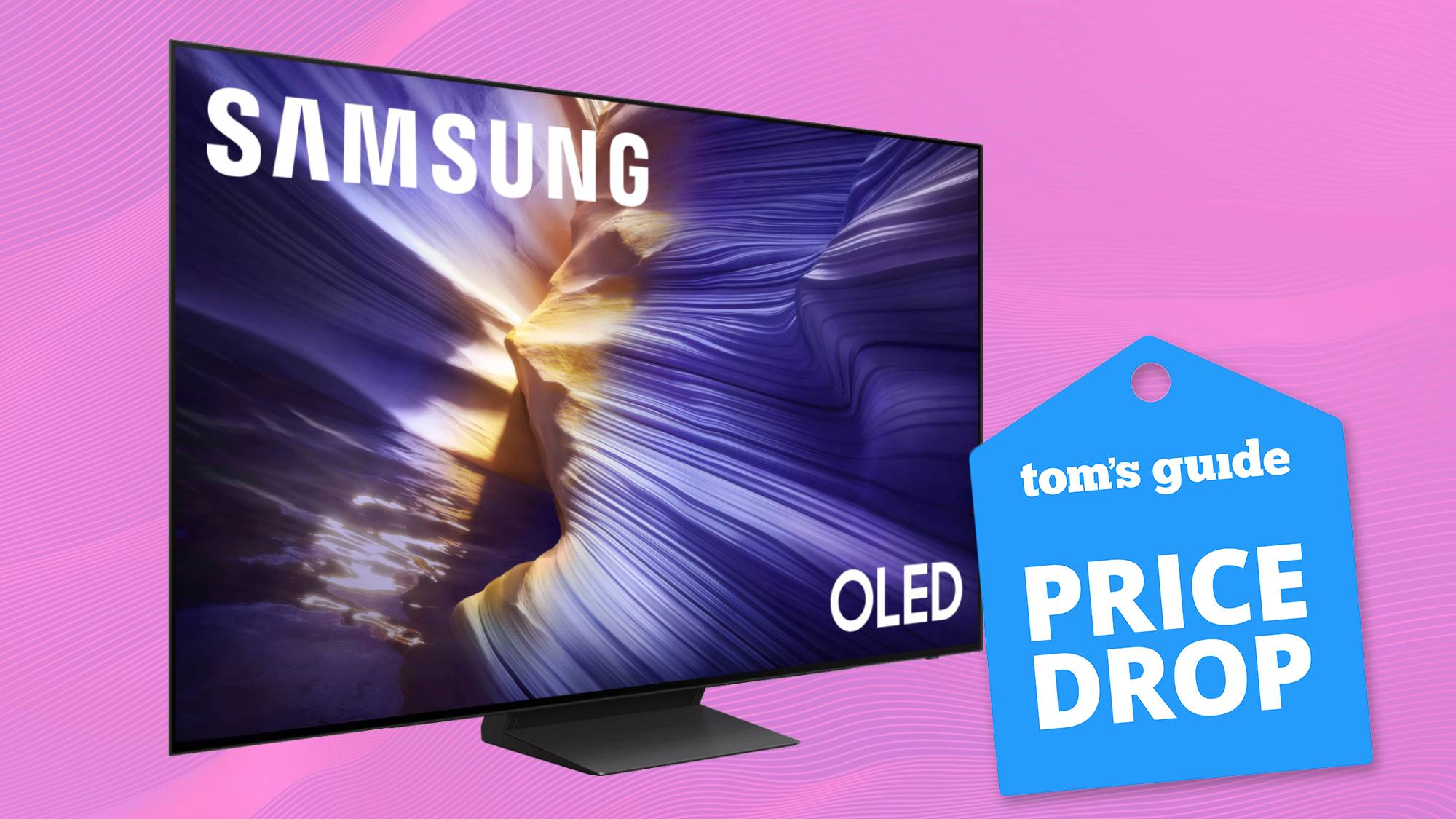How do free VPN services make money?
Is your data being turned into cold hard cash?

Here at Tom’s Guide our expert editors are committed to bringing you the best news, reviews and guides to help you stay informed and ahead of the curve!
You are now subscribed
Your newsletter sign-up was successful
Want to add more newsletters?

Daily (Mon-Sun)
Tom's Guide Daily
Sign up to get the latest updates on all of your favorite content! From cutting-edge tech news and the hottest streaming buzz to unbeatable deals on the best products and in-depth reviews, we’ve got you covered.

Weekly on Thursday
Tom's AI Guide
Be AI savvy with your weekly newsletter summing up all the biggest AI news you need to know. Plus, analysis from our AI editor and tips on how to use the latest AI tools!

Weekly on Friday
Tom's iGuide
Unlock the vast world of Apple news straight to your inbox. With coverage on everything from exciting product launches to essential software updates, this is your go-to source for the latest updates on all the best Apple content.

Weekly on Monday
Tom's Streaming Guide
Our weekly newsletter is expertly crafted to immerse you in the world of streaming. Stay updated on the latest releases and our top recommendations across your favorite streaming platforms.
Join the club
Get full access to premium articles, exclusive features and a growing list of member rewards.
If there is one important realization about the modern age of computing, it’s that there are many ways to make money - if you can attract customers to your product. A good example of this is with a free VPN. Otherwise known as Virtual Private Networks, VPNs are a simple way of obscuring your IP address and encrypting your data in order to stay more anonymous online.
End-users rely on the best VPN services for secure access to their own servers, files, and streaming media they want to share for easy access. A VPN is an important technology in light of the prevalence of data breaches.
- Discover the overall very best VPN services available
- Looking to stream? See the best Netflix VPNs
- Need a provider for Apple? Check out the best VPN for Mac
For companies trying to secure and encrypt their financial records and user data, using a helps ensure that an employee connecting from Germany has the same experience as if they were sitting in a cubicle in London or New York.
From a security infrastructure standpoint, there is no difference between a local user connecting to the network and someone connecting over the public Internet. The same tunneling and encryption features are active and enabled.
For a consumer running a VPN, perhaps to unblock overseas streaming sites or just to improve personal privacy, a financial outlay can be quite off-putting.
Fortunately, there are free services such ProtonVPN or PrivadoVPN that provide all of the encryption you need, the client access for a secure connection, and advanced security protocols to keep your files safe.
A question you might wonder is how these VPN services actually make money, compared to premium versions like ExpressVPN. You might even wonder if they are selling your user data somehow (usually, the answer is no because it violates the terms of service -- although not every no-fee VPN guarantees this).
There are a few possible revenue streams, and each one has pros and cons for how you access the service and what you are willing to compromise in terms of your personal security.
Trial basis before signing up for the premium
There’s no question the most common way that a free service makes money is by offering a paid version as an alternative. ProtonVPN, for example, makes it clear to users that the paid version is what subsidies the free version and makes it possible. In some ways, the free version is an advertisement for the paid version even more than an ugly banner ad on a website.
There’s a reason this revenue strategy works. In modern computing, we tend to prefer services that become part of our daily routine. If Google ever started charging for the free version of Gmail, most of us would be in trouble (especially if we are not willing to shell out money for Google G-Suite). We tend to get “hooked” and then rely on those services.
For a VPNs, we might use it routinely as a primary way to access remote files. We get used to the interface, we have the client installed on our phones and laptops. Yet, there is always the allure of moving up to the paid version which might offer a few premium features, readily available technical support, or other perks. The basic software experience is the same, but the hope with many free services is that you will move up to the professional version.
Ad-supported model
Even if a free service is hoping you upgrade to a professional version, the company might be showing you ads as a way to make money every time you connect. Interestingly, the ad-supported model is also the most varied in terms of where you see the ads.
With some VPN clients, you might only see ads when you visit the main website -- the client itself and the software you use for access might not show you ads. This makes sense because you might need to visit the main website every time you need to check for a new release, get support from other users, or download a new client for one of your devices.
Of course, the client itself might show ads, and they might even be subtle enough that you won’t notice (when the client and website show too many ads, we tend to think of them as junkware). An advertisement in the client might be a simple link or banner that blends into the background, and some of us might even be surprised when we realize a piece of software is ad-supported.
In many ways, when a VPN makes money from ads, it is more “pure” in the sense that the features are powerful and robust, and the VPN is not throttling the access in hopes you will upgrade to the premium version. If you can put up with ads, the secure connection might be quite valid. If not, you might prefer to look at our guide to the best cheap VPN.
In fact, for a product like Hotspot Shield you might find that the encryption and client options match what you’ll find in a premium VPN. It still affords the same peace of mind that your browsing, media streaming, and file transfer are secure and safe.
The bad guys selling your data
We’ve covered the two most common ways free services make money. Reputable services will provide a limited feature set in hopes you will register for the paid version, and showing ads is common because it means the VPN works reliably but provides a revenue stream.
Then there are the bad eggs. Without explicitly stating this, some VPN services make money by selling your user information. This might be as simple as selling email addresses so that you receive more spam.
In other cases, it might be far more nefarious - a VPN might sell all of your private information including your location, address, email, and profile info as a way to make money. Those who purchase this info will then start showing you ads and sending more spam. When the VPN makes it clear and you agree to this arrangement, that’s one thing. More often, you sign-up for the free service and use what seems like a legitimate product that is not so legitimate.
- Don't settle...make sure you download only the best free VPN
Get instant access to breaking news, the hottest reviews, great deals and helpful tips.
John Brandon is a technologist, business writer, and book author. He first started writing in 2001 when he was downsized from a corporate job. In the early days of his writing career, he wrote features about biometrics and wrote Wi-Fi router and laptop reviews for LAPTOP magazine. Since 2001, he has published over 15,000 articles and has written business columns for both Inc. magazine and Forbes. He has personally tested over 10,000 gadgets in his career.
 Club Benefits
Club Benefits











